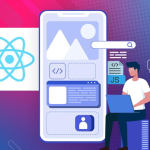Much like flying cars, quantum computing is one of those things that will let us know that the future has finally arrived. The same can be said for AI, particularly recent projects that have gained notoriety. While we don’t have flying cars yet, recent AI developments have drawn more attention to quantum computing and its applications.
Possible Applications Of Quantum Computing
Quantum computing is faster, though quantum computing wouldn’t be a replacement for classic computing for menial tasks of daily life. Sending emails with a quantum computer would be a waste of its power, for example.
In a similar vein, it can lead to more sophisticated quantum random number generators that are closer to true random. At present, we have pseudorandom number generators that are close enough, featuring most prominently in online games that involve dice or randomly drawn/shuffled cards, like blackjack at https://casino.betfair.com/c/blackjack for example. While current solutions are random enough for human beings, being able to deliver QRNGs can be a great selling point in the future, as increased randomness is always appreciated in games of luck.
If you needed a primer on quantum computing – modern computing semiconductors represent data in bits, which have values of either one or zero. With quantum computing, we could use quantum bits – qubits – which can be a one, a zero, or both all at once. If you know about Schrodinger’s cat, you’re already aware of quantum superposition. In computing, it isn’t just a thought experiment.
Quantum Computing & AI
We have quantum computing right now, primarily through very sophisticated government-backed corporations and the services they offer, like Canada’s Borealis quantum computer made by Xanadu Quantum Technologies, America’s Condor made by IBM’s quantum division, and China’s Qianshi made by Baidu. In each case, commercial applications may be pursued as soon as 2025.
Don’t be intimidated by quantum computing! We are breaking down some of the common myths and questions.
— IBM Research (@IBMResearch) October 30, 2020Emerging AI and machine learning methods dovetail well with quantum computing. For example, a limited language model AI like ChatGPT will benefit from quantum’s ability to parse datasets and establish patterns that traditional computing cannot, making for more realistic mimicry of responses to training data/prompts. This is something underway already, called QNLP, which you can read more about at https://www.eetimes.com/exploring-the-industrial-relevance-of-qnlp/.
Enhanced Decision-Making
Where AI and quantum computing intersect, you get a highly capable program that can crunch numbers faster than any modern computer and use them to generate authentic, context-specific, near-human interactions. This kind of enhanced decision-making is being tested in the healthcare field. Some of those aforementioned projects have already devoted quantum computers solely for the purpose of healthcare research.
Startups are also leveraging AI quantum computing to delve deeper into issues such as cancer detection and treatment. An AI can be sufficiently trained from a patient’s medical profile to rule out certain illnesses and more accurately find the issue, in record time, that humans aren’t capable of. If used responsibly, AI powered by quantum computing could become a huge new market.
AI and other technology available to us can improve businesses big or small, something we wrote about here at https://thenewsgod.com/ai-for-decision-making-revolutionizing-the-way-we-make-decisions/. Adding widespread quantum computing to that equation will put most of these applications into overdrive, giving unprecedented calculating power to services that will benefit us.















